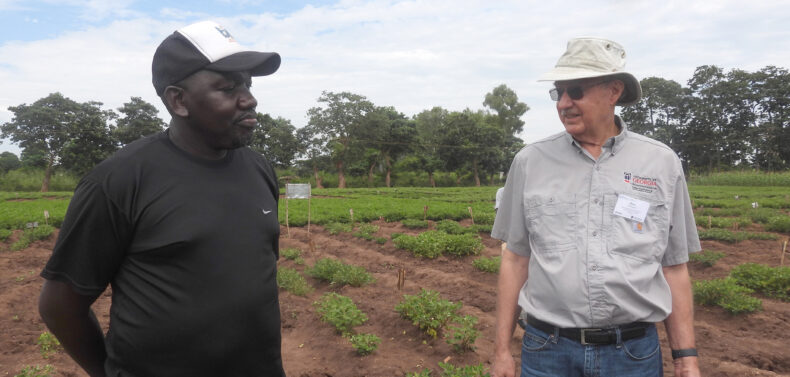The University of Georgia has lost tens of millions of dollars in federal research grants during the first six months of the Trump administration, according to an analysis by a left-leaning think tank.
Records posted online by the Department of Government Efficiency (DOGE), created by President Trump and run by tech CEO Elon Musk, are notoriously riddled with errors. But the Center for American Progress was able to cross-check them against other government documents, academic databases and media reports to come up with a (still incomplete) list of grant cuts, then organized the list by congressional district.
“While DOGE’s original purported mission to reduce waste, fraud and abuse was, on its face, commendable, its implementation has led to severe consequences,” the group stated in a report. “Instead of targeted improvements, the initiative has resulted in rolling blackouts of essential government services and the elimination of critical investments in research, education, food programs, public health initiatives, rural health care access, mine safety capacity and even the Social Security system. What began as a well-intended effort has devolved into cruel and indiscriminate cuts that undermine vital public programs.”
CAP reported that DOGE has cut more than 50 grants affecting U.S. Rep. Mike Collins’ 10th District, all of them either statewide or specifically located in Athens. Some of the biggest grants were for foreign aid, while most of the smaller ones had environmental implications or were related to efforts to recruit more women and people of color into traditionally white male-dominated fields like computer science. President Trump has used executive orders to target efforts to stymie climate change, as well as diversity, equity and inclusion initiatives, or DEI.
The largest cut at UGA was a $12.5 million reduction to a $35 million U.S. Agency for International Development grant that funded the Peanut Research Innovation Lab at UGA, which aims to improve nutrition and food safety by helping peanut farmers in developing countries. Another $5 million USAID grant was cut by $939,000. That one funded a Warnell School of Forestry and Natural Resources program working to strengthen conservation and forest management in war-torn Liberia. The UGA Research Foundation also lost a $1.7 million USAID grant to “support humanitarian information management through geographic information systems, data analytics and visualizations.”
The Mary Frances Early College of Education lost a $2.8 million Department of Education grant to train 50 graduate students in the school counseling and school psychology programs to provide mental health services to K-12 schools in rural Georgia—perhaps because the grant application mentioned that services “are inclusive in terms of race/ethnicity, culture, language and sexual self-identity.”
A $2.5 million National Science Foundation grant canceled by DOGE would have assisted UGA in diversifying the STEM (Science, Technology, Engineering and Math) workforce. “Particular emphasis is placed on transforming STEM education through innovative recruitment and retention strategies and experiences in support of groups underrepresented in STEM disciplines: African Americans, Alaskan Natives, American Indians, Hispanic Americans, Native Hawaiians and Native Pacific Islanders,” according to the project description for the Peach State Louis Stokes Alliance for Minority Participation.
DOGE also cut or rescinded numerous smaller grants to UGA, including:
• a $299,949 grant from the Department of Agriculture for a partnership between historically Black Spelman College and UGA to increase diversity among students pursuing food and agricultural science degrees.
• a $97,460 USDA grant to raise awareness of water and soil conservation.
• a $99,704 USDA grant to conduct outreach to “small, new beginner, historically underserved [and] veteran farmers, ranchers and youth in Northeast Georgia and Metro Atlanta.”
• a $121,319 Federal Emergency Management Agency grant for “building resilient communities and infrastructure.”
• a $497,220 grant for the UGA Cooperative Extension’s 4-H youth leadership program, along with other Americorps grants of $374,315, $71,253, $269,948 and $40,000 to support other Americorps volunteer national service projects, such as the UGArden.
• a $148,467 grant from the National Endowment for the Humanities for a sociology study entitled, “Dangers and Opportunities of Technology: Perspectives From the Humanities.”
• $30,270 from the NEH for the Georgia Newspaper Project, which digitizes and preserves newspapers.
• a $74,971 National Science Foundation grant for a biological sciences “network incubator” to “remove barriers and enhance the success of marginalized students.”
• a $244,095 NSF grant to “examine Black undergraduate women’s academic and career outcomes in the computer sciences field.”
• a $196,799 NSF grant for a partnership among the Eastern Band of Cherokee Indians, UGA, the U.S. Forestry Service and a STEM research organization to recruit more indigenous people into forest fire management.
• a $30,000 NSF grant for students to attend an engineering conference on the use of machine learning in manufacturing, with priority given to women and underrepresented minority groups.
• $346,897 from the NSF to create a “virtual distance learning community” for rural math teachers.
• a $100,000 NSF grant to find solutions for water systems in the Southeast that “are under increasing strain and are failing many of the most vulnerable and underserved populations.”
• a $179,171 NSF grant to research the “assets that [minority] students bring to the engineering design process.”
• a $214,999 NSF grant to study the spread of misinformation online.
• a $147,021 NSF grant for MPOWIR, a program that mentors women in the field of oceanography.
• a $644,642 NSF grant to “make significant contributions to racial equity in STEM by identifying and describing forms of systemic racism inherent in mathematics teacher education programs.”
• a $99,821 NSF grant to “weave [artificial intelligence’s] transformative potential seamlessly with the foundational principles of diversity, equity and inclusion.”
Like what you just read? Support Flagpole by making a donation today. Every dollar you give helps fund our ongoing mission to provide Athens with quality, independent journalism.









